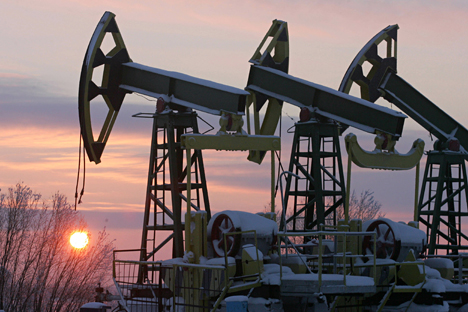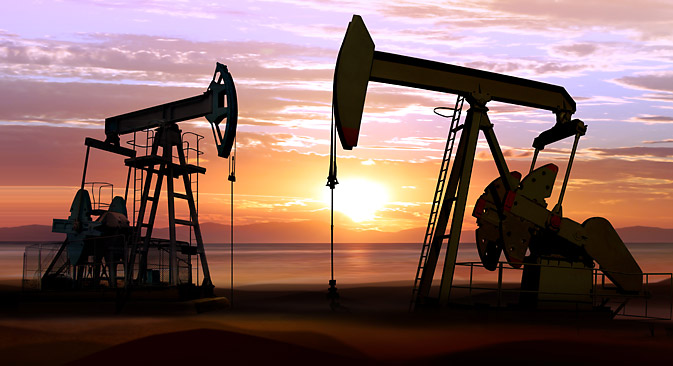Russia’s oil majors agree to freeze production

The Russian government hopes that as a result oil prices may increase or at least stabilize.
ReutersThe heads of Russia’s largest oil companies have agreed to freeze production at January 2016 levels during a meeting with Russian President Vladimir Putin, in exchange for fiscal benefits from the government.
Russian Energy Minister Alexander Novak conveyed the decision of the oil companies after the meeting on March 1, describing as “positive” the position of the all the participants. However, freezing production at the January 2016 level does not necessary imply production cuts.
The Russian government hopes the decision would raise oil prices or at least help them stabilize. Analysts, however, said the cost of hydrocarbons depended on many factors.
"A freeze at the current level of production in Russia is possible and moreover, it will be very advantageous if OPEC members and other oil producing countries agree to a reduction of oil production," said Ivan Kapitonov, professor at the Russian Presidential Academy of National Economy and Public Administration, an institute close to the government.
The advantage for Russian oil companies lies in the fact that, with current level of taxation, it is unprofitable to develop new deposits, Kapitonov opined. Now they would be able to reduce their investment programmes.
The agreement
The meeting between Putin and the heads of Russia’s leading oil companies took place in the boardroom of the Kremlin's Security Council, where the most important and confidential meetings are held.
According to the business daily RBK, the oil bosses were afraid that they would be forced to either reduce production or export, which they were unprepared to do.
Such a decision would have meant losing a share of the market and not seeing a return on investments. The Russian President remarked that in 2015 Russian oil companies had produced a record of 534 million tons of oil, which is 1.4 percent more compared to 2014.
"Our aim is to maintain the stability of the oil industry and guarantee its development," said Putin.
For agreeing to keep oil production at January levels the companies will get fiscal benefits or at least obtain a reduction in the current level of pressure, despite falling budget revenues, Energy Minister Novak told RIA Novosti. However, he said, the issue of fiscal regulation for the oil industry will first be discussed within the government.
Influence on prices
Russia, Saudi Arabia, Qatar and Venezuela agreed last month to maintain production at the January 2016 level, on condition that other producing countries join the initiative. Ecuador, Algeria, Nigeria, Oman, Kuwait and the UAE have announced their readiness to freeze production, but no formal agreements on the issue have been signed yet. Meanwhile, Iran, which has been freed from Western sanctions, is threatening to increase production.
"The oil production level freeze that Russia and Saudi Arabia have agreed to is most likely a ‘verbal intervention’ rather than a real factor that would influence the price," said analyst Alexei Kalachev from Finam Holdings. He added that the countries had agreed to freeze production at the January level, which was one of the highest in history.
However, Dmitry Bedenkov, chief analyst at Russ Invest, pointed out that oil prices today depend not only on producers but also on demand from key consumers, primarily China. Oil demand from developing countries is constantly falling, he said.
Georgy Vaschenko, director of operations on the Russian capital market at Freedom Finance, believes that low demand is likely to keep prices in check until at least 2017.
"The unbalance between supply and demand is currently about 1.5 million barrels a day and this will restrain the price until the end of the year," he said.
All rights reserved by Rossiyskaya Gazeta.
Subscribe
to our newsletter!
Get the week's best stories straight to your inbox
